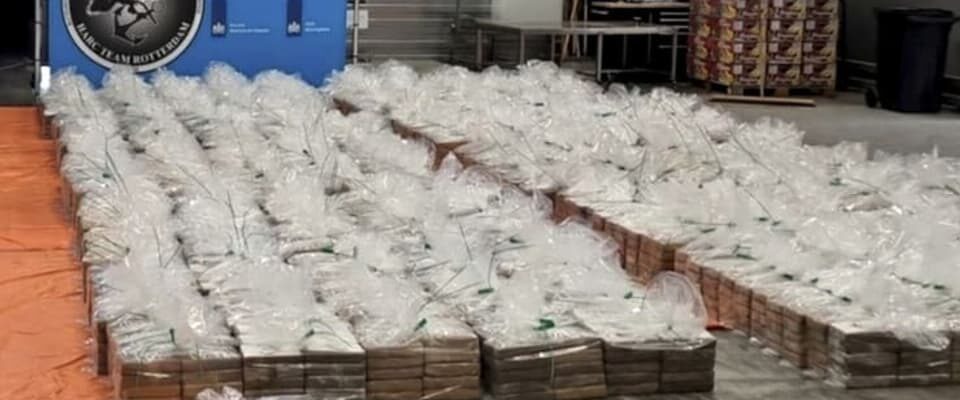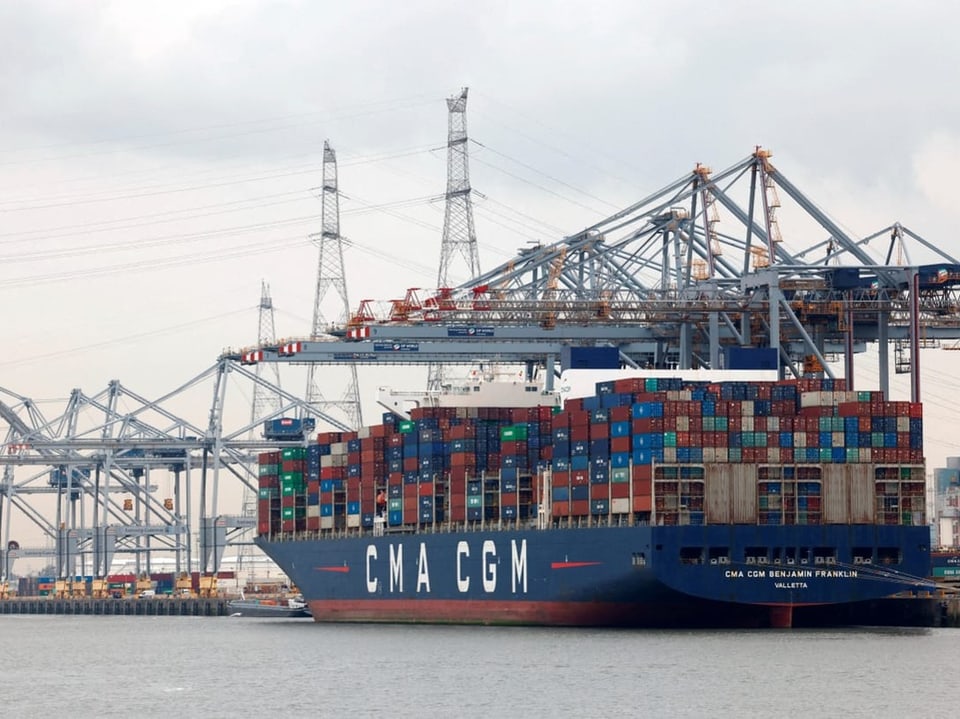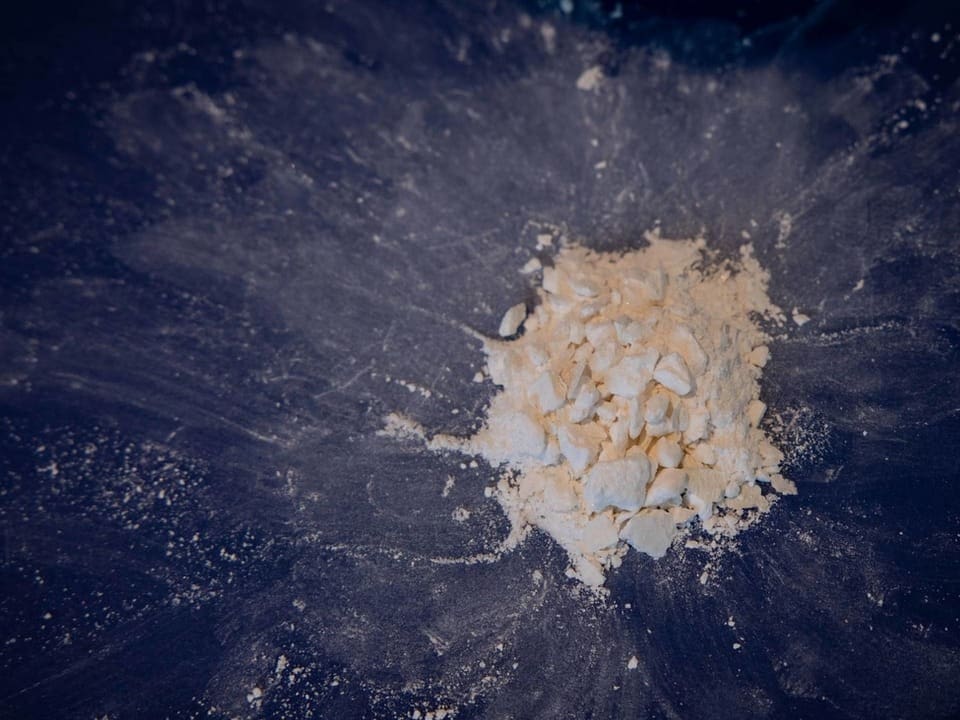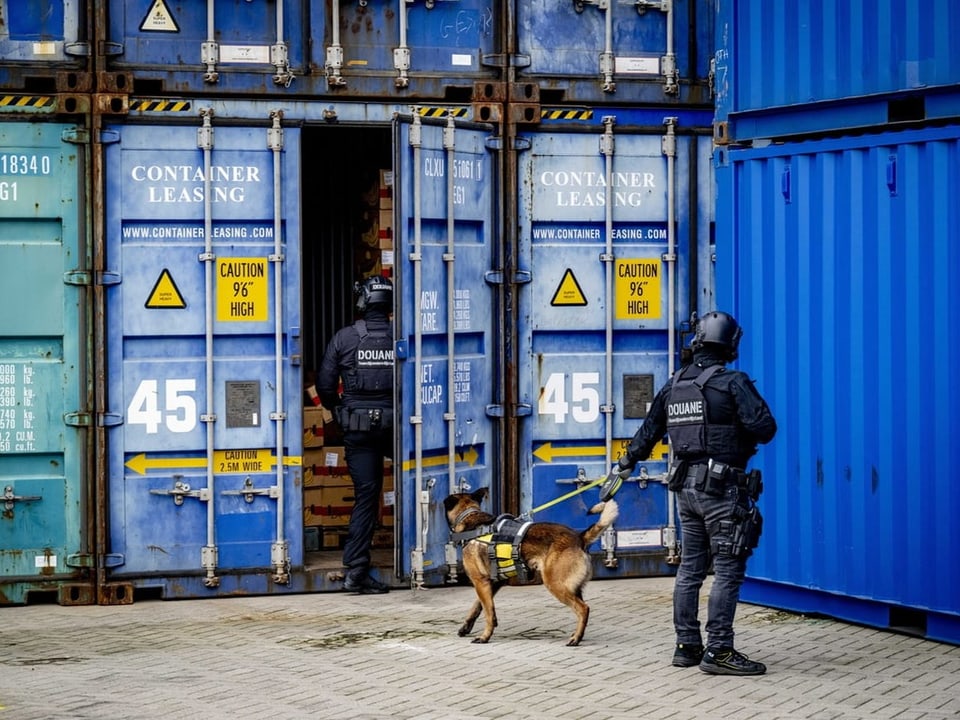Contents
180 tons of cocaine: That’s how much customs authorities confiscated in ports on the Belgian and Dutch North Sea coasts last year. A new record.
The authorities say the controls have improved. Therefore, the amount of cocaine confiscated would also increase. This analysis by the authorities cannot be verified. It is clear that the demand for cocaine in Europe is enormous. The continent has now replaced the USA as the most important market for the drug.
Cocaine currently arrives primarily in the large North Sea ports via container shipping. “We are the gateway to Europe,” says Dutch customs director Nanette van Schelven. “All the legal products that come to Europe – for Switzerland, Poland or Germany – come through here, and so does the cocaine.”
The Netherlands and Belgium seem overwhelmed
In Belgium and the Netherlands, the drug glut has long since become a security issue. In cities like Antwerp, Brussels, Rotterdam and Amsterdam, there are repeated shootings or bomb attacks in the drug community. A year ago, an eleven-year-old girl was killed in a shooting in Antwerp.
The drug cartels protect their profits with violence and go to great lengths to do so. “Without a fundamental change of course, the Netherlands threatens to become a narco-state,” wrote the mayor of Amsterdam in a guest article in the British “Guardian” at the beginning of the year.
The cocaine trade has an impact on the safety of customs personnel and security at ports. But also on the safety of our citizens.
In Belgium, the authorities cannot keep up with the destruction of the seized cocaine. The drugs often have to be stored for days before they can be destroyed. This allows drug gangs to get the cocaine back. Similar actions have already taken place several times. «The cocaine trade has an impact on the safety of customs staff and port security. But also on the safety of our streets and the safety of our citizens,” says Belgian Finance Minister Vincent van Peteghem, who is responsible for customs.
But the authorities are also having some success in the fight against organized drug trafficking. Around two years ago, Belgian investigative authorities decrypted the Sky ECC messaging service used by criminals. As a result, there were raids across Europe and numerous people were arrested. Since December, 125 people have been on trial in Brussels.
EU plans alliance of northern European ports
The Dutch and Belgian authorities admit that they cannot solve the problem alone. European and international cooperation must be further strengthened.
The EU sees a need for action. She counts drug trafficking as one of the “biggest security threats” facing Europe. “We need a network to fight a network,” said EU Interior Commissioner Ylva Johansson.
An alliance of several northern European ports is to be founded soon. In addition to the security authorities, the private transport industry should also be included in this. The port alliance should at least be a piece of the puzzle to stem the cocaine glut.



